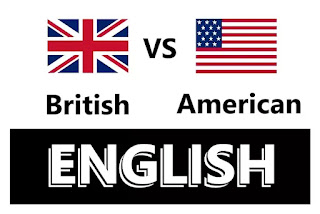There will undoubtedly be disparities because English is spoken in so many different regions around the globe. Despite the similarities between American and British English, there are still enough variances between the two that it may not always be possible for someone to fully comprehend what someone from another country is saying. The English language has 160 distinct dialects in addition to several alternative spellings and phrases for describing various topics. Fortunately, a number of these useful diagrams have been produced by the US Department of State to help explain the relationship between British English and English. American English is used.
Do you know that the British adopted what are now their old French-language words, which is why there are differences in the spelling of words like American colour and British colour or funny and humour? Later, the spelling was made simpler for America. Similar adjustments of grammar have contributed to numerous other variations between American and British English.
English language has been permanently altered by the imperial histories of the United States and Great Britain as well as by current global influences. It was compelled to acquire different dialects of the same language when it was exported to various nations, the most well-known of which was the British vs. American.
The official language of 53 nations, English is the second most widely spoken native language in the world. Although most of its speakers reside in the United States, it first appeared more correctly in Great Britain and the British Isles. English is the most popular language among those learning foreign languages and is used extensively in international communication.
English has a wide range of dialects, much like any other language. The most well-known variations of English are British and American. Can you differentiate them? Think about how we compared.
Is there a difference between British and American English?
These two English types are unquestionably not the same, yet they are also not drastically different. If you speak English as a second language and are worried that changing a few words may render you incomprehensible, you should be aware of this. The two types occasionally have different spelling, pronunciation, vocabulary, or even grammatical structures, though this is nearly never the case (as you’ll see below). The Internet and globalisation, however, have lowered these differences. We promise that you will finally leave London with a pair of decent pants, even if you are astonished when you inquire about the pants’ availability of pockets.
While sending an official letter, email, or when conversing with someone in a professional setting, we suggest you to adhere to one choice. Always make sure the spelling checker is set to the one you want when writing. You won’t make many spelling errors this way. Look up the words that are unique to each kind in dictionaries to learn more about the distinctions in vocabulary.
But why are there even any differences? The answer is challenging since so many variables are at play. English settlers who relied on oral speech for pronunciation brought American English, which is older than British English, to the American continent. The letter r was thus pronounced as plainly as it is today. The r sound was softened in Britain by the upper social strata, and it has persisted ever since. The American endeavour to set itself apart from the British has led to the distinct spellings, in large part because of Mr. Noah Webster, whose website I recommend you look up on Google. Both nations borrowed terminology from their neighbours, which led to the use of various terms for the same thing. While many Spanish words were acquired by Americans, many English ones were taken from French.
You may watch a tonne of entertaining YouTube videos where native speakers compare their vocabulary since sometimes the disparities are rather amusing. Look to this British-American couple attempting to communicate while raising their child to take your mind off of all this stuff. But remember to check back because we’ll discuss some of the key distinctions between British and American English.
American and British spelling
You might discover that your text editor flagged the spelling as incorrect when you were producing the text. However, the spelling was accurate when you looked it up in the dictionary. The distinctions between British and American English are frequently to blame for this.
American and British grammar differences
The differences between American and British English’s grammar are a little more complicated. The little yet important distinctions.
Consider the verb “have,” for instance. The words “have” and “have” are used differently in American and British English when referring to fixation (I have got a book). Important Note: In American English, the word have got is also employed, but mostly to denote an obligation (I have got to go.).
The present perfect tense is used differently as well. Americans typically omit the verb have in this tense, whereas British people typically use the verb have (I just came). The plans sound easier as a result: I’ve just come.
Additionally, there are various ways to employ collective nouns. In British English, the words team and committee can be used in either the single or the plural, with the plural being more common and signifying a group of people. Because the group is seen as a whole in the United States, these words are always regarded as special.
Finally, there is the present subjunctive mood, which is reserved for true English language experts. This pattern was employed in both American and British English up until the 20th century, but only the first persisted. In required sentences like “I insist that you be here” or “She told him to come early,” Americans frequently use this expression. This format is only utilised in formal writing in the UK. Additionally, the following is frequently added to sentences in daily life, for instance: “She recommended him to come early.”
